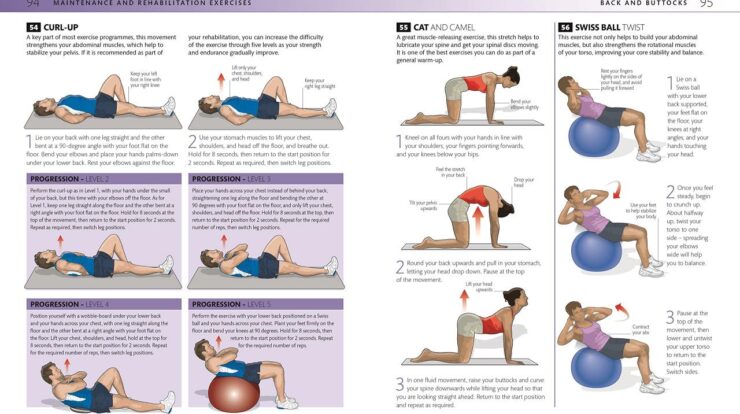
Discover how to cure gum disease without a dentist! This comprehensive guide empowers you with natural remedies, oral hygiene techniques, dietary modifications, and lifestyle changes to restore your gum health. Get ready to ditch the dental chair and take control of your oral hygiene journey today!
Natural Remedies

Gum disease is a common problem that can be caused by poor oral hygiene, smoking, or certain medical conditions. While there are a number of effective treatments available, many people prefer to try natural remedies first.
There are a number of herbs, spices, and essential oils that have been shown to have antibacterial and anti-inflammatory properties that may help to reduce gum inflammation and improve oral health.
Gum disease is a common problem that can lead to serious health issues if left untreated. While it’s best to see a dentist for professional treatment, there are some things you can do at home to help cure gum disease.
How to cure gum disease without a dentist includes brushing your teeth twice a day, flossing daily, and using a mouthwash that contains fluoride. You can also try using natural remedies, such as rinsing your mouth with salt water or applying tea tree oil to your gums.
Herbs
- Green teacontains polyphenols, which have antioxidant and anti-inflammatory properties. Drinking green tea may help to reduce gum inflammation and improve oral health.
- Echinaceais a herb that has been shown to have antibacterial and anti-inflammatory properties. Taking echinacea supplements may help to reduce gum inflammation and improve oral health.
- Aloe verais a plant that has been shown to have antibacterial and anti-inflammatory properties. Applying aloe vera gel to the gums may help to reduce gum inflammation and improve oral health.
Spices
- Turmericis a spice that contains curcumin, which has antibacterial and anti-inflammatory properties. Taking turmeric supplements or adding turmeric to food may help to reduce gum inflammation and improve oral health.
- Gingeris a spice that contains gingerol, which has antibacterial and anti-inflammatory properties. Taking ginger supplements or adding ginger to food may help to reduce gum inflammation and improve oral health.
- Cloveis a spice that contains eugenol, which has antibacterial and anti-inflammatory properties. Taking clove supplements or adding clove to food may help to reduce gum inflammation and improve oral health.
Essential Oils
- Tea tree oilis an essential oil that has antibacterial and anti-inflammatory properties. Applying tea tree oil to the gums may help to reduce gum inflammation and improve oral health.
- Myrrh oilis an essential oil that has antibacterial and anti-inflammatory properties. Applying myrrh oil to the gums may help to reduce gum inflammation and improve oral health.
- Frankincense oilis an essential oil that has antibacterial and anti-inflammatory properties. Applying frankincense oil to the gums may help to reduce gum inflammation and improve oral health.
It is important to note that natural remedies should not be used as a substitute for professional dental care. If you are experiencing symptoms of gum disease, it is important to see a dentist to rule out any underlying medical conditions and to get the appropriate treatment.
Looking for an easy way to cure gum disease without a dentist? Check out this guide how to cure gum disease without a dentist to learn about natural remedies and lifestyle changes that can help improve your oral health. You’ll be surprised at how easy it is to get rid of gum disease without a dentist!
Contraindications and side effects
Some natural remedies may have contraindications or side effects. For example, green tea may interact with certain medications, such as blood thinners. Echinacea may interact with certain medications, such as immunosuppressants. Aloe vera may interact with certain medications, such as diabetes medications.
While maintaining optimal oral health is crucial, gum disease can develop even with diligent care. If you’re seeking ways to address gum disease without professional dental intervention, consider exploring how to cure gum disease without a dentist . This resource provides valuable insights into effective home remedies and lifestyle adjustments that can support gum health and potentially alleviate symptoms of gum disease.
It is important to talk to your doctor before taking any natural remedies, especially if you are pregnant, breastfeeding, or have any other health conditions.
Did you know that there are natural ways to cure gum disease without having to visit a dentist? Here are some simple and effective home remedies that can help you get rid of gum disease for good.
Oral Hygiene Techniques

Maintaining optimal oral hygiene is crucial for preventing and managing gum disease. Proper brushing and flossing techniques, along with the use of interdental brushes, water flossers, and tongue cleaners, are essential for removing plaque and bacteria from the teeth and gums.
Brushing Techniques
- Use a soft-bristled toothbrush and hold it at a 45-degree angle to the gum line.
- Gently brush in circular motions, covering all surfaces of each tooth.
- Brush for at least two minutes twice a day, focusing on the gum line and areas where plaque tends to accumulate.
Flossing Techniques
- Use unwaxed dental floss and wrap it around the middle fingers of both hands.
- Gently slide the floss between each tooth, curving it around the base of the tooth to remove plaque and food particles.
- Floss at least once a day, paying attention to areas where food gets stuck.
Interdental Brushes
Interdental brushes are small, cone-shaped brushes that can reach between teeth and remove plaque from areas that are difficult to clean with a toothbrush or floss.
Water Flossers
Water flossers use a stream of water to remove plaque and food particles from between teeth and below the gum line. They are particularly effective for people with braces or other dental appliances.
Tongue Cleaners
Tongue cleaners help remove bacteria and debris from the tongue, which can contribute to gum disease. Use a tongue cleaner daily to maintain a clean and healthy tongue.
Regular Dental Checkups and Professional Cleanings
Regular dental checkups and professional cleanings are essential for maintaining gum health. During a checkup, your dentist will examine your teeth and gums for signs of gum disease and other oral health issues. A professional cleaning involves the removal of plaque and tartar from the teeth and below the gum line, which can help prevent and treat gum disease.
Dietary Modifications: How To Cure Gum Disease Without A Dentist

Nutrition plays a crucial role in maintaining gum health. A balanced diet rich in vitamins, minerals, and antioxidants can help strengthen gums and prevent gum disease.
To promote healthy gums, focus on reducing sugar intake, avoiding processed foods, and incorporating plenty of fruits, vegetables, and whole grains into your diet. These foods are rich in nutrients that support gum health, such as vitamin C, vitamin D, calcium, and fiber.
Foods to Promote Healthy Gums
- Fruits:Berries, citrus fruits, apples, and bananas are rich in vitamin C, an antioxidant that helps protect gums from damage.
- Vegetables:Leafy greens, broccoli, and carrots are excellent sources of vitamin K, which is essential for blood clotting and wound healing.
- Whole grains:Brown rice, quinoa, and oatmeal provide fiber, which helps remove plaque and bacteria from the teeth and gums.
- Dairy products:Milk, cheese, and yogurt are rich in calcium, which helps strengthen teeth and bones, including the jawbone that supports the gums.
- Fish:Fatty fish like salmon and tuna are good sources of omega-3 fatty acids, which have anti-inflammatory properties that can help reduce gum inflammation.
Sample Meal Plan for Gum Health
Breakfast:Oatmeal with berries and nuts Lunch:Salad with grilled salmon, leafy greens, and vegetables Dinner:Chicken stir-fry with brown rice Snacks:Apple slices with peanut butter, carrots with hummus
Lifestyle Factors
Gum disease can be exacerbated by certain lifestyle factors, including stress, smoking, and sleep deprivation. Managing these factors can contribute to maintaining good oral health and preventing gum disease.
Stress
Stress can have a negative impact on overall health, including oral health. When stressed, the body releases hormones that can weaken the immune system, making it more susceptible to infections, including gum disease. Chronic stress can also lead to poor oral hygiene practices, such as neglecting to brush or floss regularly.
To manage stress, consider engaging in stress-reducing activities such as exercise, yoga, or meditation. Establishing a regular sleep schedule, maintaining a healthy diet, and connecting with loved ones can also help reduce stress levels.
Smoking
Smoking is a major risk factor for gum disease. The chemicals in cigarettes damage the gums and weaken the immune system, making it easier for bacteria to colonize and cause infection. Smoking also reduces the flow of saliva, which is essential for washing away bacteria and maintaining a healthy oral environment.
Quitting smoking is one of the most important steps you can take to improve your oral health. Consider seeking support from a healthcare professional or joining a support group to increase your chances of success.
Sleep Deprivation
Sleep deprivation can also contribute to gum disease. When you don’t get enough sleep, your body produces more of the stress hormone cortisol, which can suppress the immune system. Additionally, sleep deprivation can lead to poor oral hygiene practices, as you may be too tired to brush or floss regularly.
To improve sleep quality, establish a regular sleep schedule, create a relaxing bedtime routine, and ensure your bedroom is dark, quiet, and cool. Avoid caffeine and alcohol before bed, and consider consulting a healthcare professional if you have trouble sleeping.
Exercise and Weight Management
Maintaining a healthy weight and engaging in regular exercise can also contribute to good oral health. Exercise helps reduce stress and improve overall immune function, while maintaining a healthy weight can help prevent diabetes, which is a risk factor for gum disease.
Advanced Treatment Options
When non-invasive measures fail to resolve gum disease, advanced treatment options may be necessary. These procedures aim to remove bacteria, reduce inflammation, and restore gum health. The choice of treatment depends on the severity of the condition and the patient’s overall health.
Surgical Procedures, How to cure gum disease without a dentist
Surgical procedures are typically recommended for severe gum disease that has not responded to other treatments. These procedures involve removing diseased tissue and reshaping the bone to create a healthier environment for the gums to reattach.
Scaling and Root Planing
- Indications:Moderate to severe gum disease with deep pockets of infection.
- Benefits:Removes bacteria and tartar from below the gum line, reduces inflammation, and promotes healing.
- Risks:Minor discomfort, sensitivity, and bleeding.
Flap Surgery
- Indications:Severe gum disease with deep pockets that cannot be adequately cleaned with scaling and root planing.
- Benefits:Provides direct access to the root surfaces for thorough cleaning and removal of diseased tissue, promotes gum reattachment.
- Risks:More invasive than scaling and root planing, may require longer healing time and increased discomfort.
Non-Surgical Procedures
Non-surgical procedures are less invasive than surgical options and are typically used for mild to moderate gum disease. These procedures aim to remove bacteria and reduce inflammation without cutting into the gums.
Laser Therapy
- Indications:Early-stage gum disease, removing bacteria in deep pockets, and treating gum infections.
- Benefits:Precise removal of bacteria, reduces inflammation, and promotes healing, less discomfort than traditional scaling and root planing.
- Risks:Potential for gum tissue damage if not performed properly.
Post-Operative Care and Follow-Up
After any advanced treatment, it is essential to follow post-operative instructions carefully to promote healing and prevent complications. This may include:
- Rinsing with antiseptic mouthwash.
- Taking prescribed antibiotics to prevent infection.
- Avoiding hard or sticky foods.
- Maintaining good oral hygiene with regular brushing and flossing.
- Regular follow-up appointments to monitor healing and ensure optimal results.
Last Point

Remember, preventing gum disease is always better than curing it. Follow these tips religiously, and you’ll be well on your way to a healthy, radiant smile. And if you do encounter any persistent issues, don’t hesitate to seek professional dental advice.
Your oral health is worth the investment!
Question & Answer Hub
Can I use mouthwash to treat gum disease?
Mouthwash can be a helpful adjunct to your oral hygiene routine, but it’s not a substitute for professional dental care. If you have gum disease, it’s essential to see a dentist for proper diagnosis and treatment.
How long does it take to cure gum disease?
The time it takes to cure gum disease varies depending on the severity of the condition and your individual response to treatment. With proper care, you can expect to see significant improvement within a few weeks to months.
Is gum disease reversible?
In its early stages, gum disease is reversible with proper treatment and lifestyle changes. However, advanced gum disease may cause irreversible damage to the gums and supporting structures.





